Hope Hicks Weeps on the Witness Stand, Denounces Michael Cohen as ‘Not Selfless and Charitable,’ a ‘Mr. Fixit’ Who ‘First Broke It’
Ms. Hicks said of Cohen that, ‘I used to say he would like to call himself a “fixer,” or “Mr. Fix-it.” But it was only because he first broke it.’

Hope Hicks, President Trump’s former White House Communications Director, who testified in his hush-money trial on Friday, broke down crying on the witness stand when the defense attorney began to cross examine her.
“Would you like to take a break?” One of the defense attorneys, Emil Bove, asked after Ms. Hicks, overcome with emotion, choked up trying to answer questions about how she started to work at the Trump Organization.
The Manhattan district attorney, Alvin Bragg, who brought the New York criminal trial against Mr. Trump, had called Ms. Hicks as his ninth witness. Ms. Hicks, once one of Mr. Trump’s closest aides, started working at the Trump Organization in 2014, four years after she finished college, and remained with Mr. Trump until 2021. Today she no longer works for him or any of his organizations.
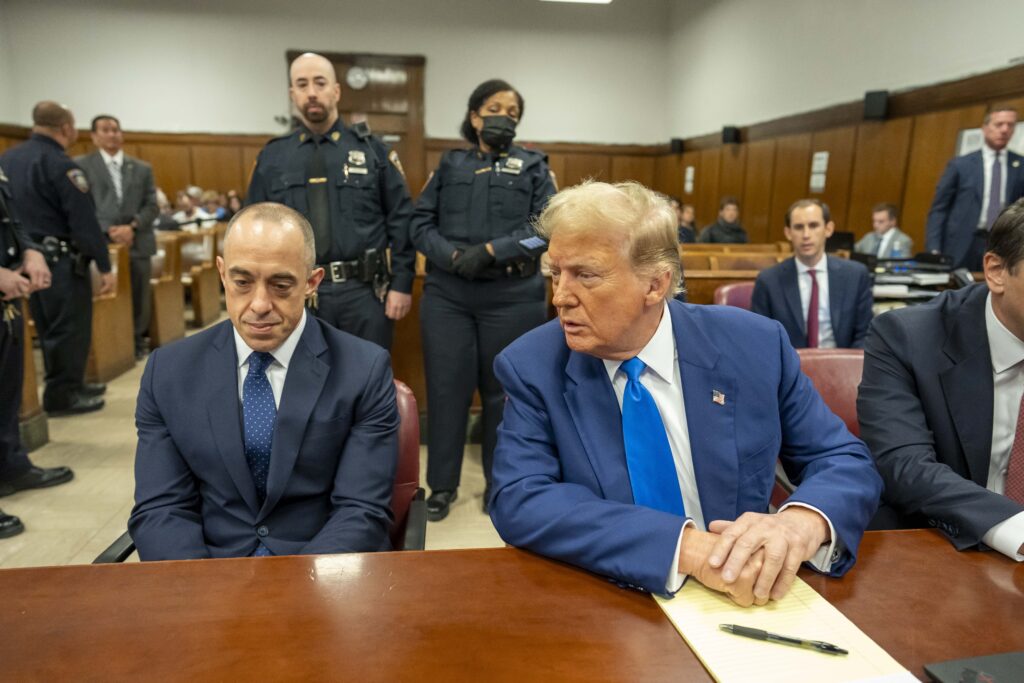
After Ms. Hicks took her oath on the witness stand, she expressed she felt nervous. Long a cipher and object of fascination to the press, she rarely speaks in public. A court officer refilled the water in her glass, which she had finished within the first few minutes of beginning her testimony. Like Rhonna Graff, Mr. Trump’s former secretary, who testified last Friday, Ms. Hicks had been subpoenaed by the district attorney. But unlike Ms. Graff, Ms. Hicks pays for her lawyers, not Mr. Trump.
She told the court that the last time she communicated with Mr. Trump was sometime in the summer or fall of 2022. Mr. Trump and Ms. Hicks were said to have had a father-daughter-style relationship, with Mr. Trump calling her “Hopey.” However, in the courtroom the two did not make much eye contact.
Mr. Trump’s daughter, Ivanka Trump, first met Ms. Hicks at Hiltzik Strategies, an elite New York public relations agency that was doing work for Ms. Trump, and brought her over to do some work for the Trump Organization.
“I was enjoying it so much that I was offered a position at the Trump Organization, and jumped on the opportunity to join the company full time,” Ms. Hicks remembered. She was hired to be the director of communications
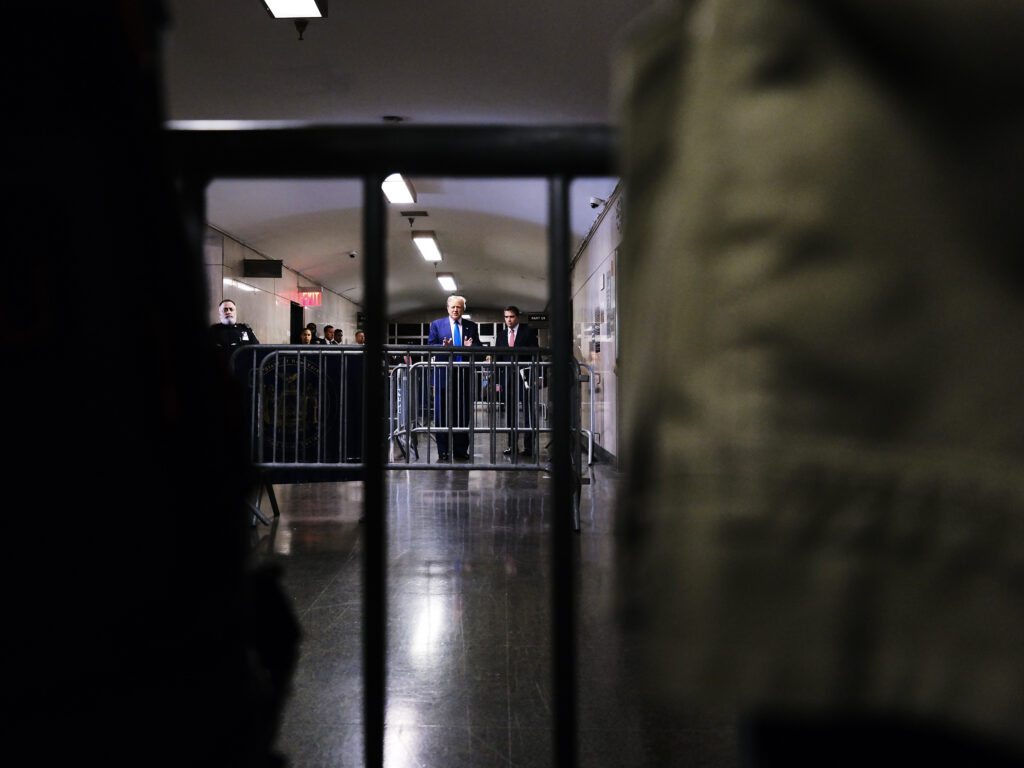
After Mr. Trump had announced his campaign for the 2016 presidency, Ms. Hicks said she began to meet with Mr. Trump more frequently. “As we transitioned a few months later into the political work, I met with him more regularly,” Ms. Hicks testified, adding that Mr. Trump is “a very good multitasker and a very hard worker. He’s always doing many things at once. He might be having a conversation with someone and it will remind him to follow up on something else.” She further testified that Mr. Trump was “better than anybody” at communications and marketing. “He knew what he wanted to say and how he wanted to say it and we were all just following his lead. I think that he deserves the credit for the different messages that the campaign focused on,” Ms. Hicks testified.
Prosecutor Michael Colangelo asked Ms. Hicks if she knew David Pecker. When the former publisher of the National Enquirer testified last week, he said, Ms. Hicks has come in and out of the August 2015 meeting, where he, Mr. Trump, and Michael Cohen discussed and schemed about how Mr. Pecker’s supermarket tabloid could best support Mr. Trump’s 2016 election campaign.
But on the witness stand Ms. Hicks did not remember. It was possible, she said.
Then the prosecution asked Ms. Hicks, how she felt when in October 2016, a months before election, the Washington Post sent her an email, asking for a comment about the infamous “Access Hollywood” tape, on which Mr. Trump told television host Billy Bush that due to his celebrity, he could “grab women” by their genitals.
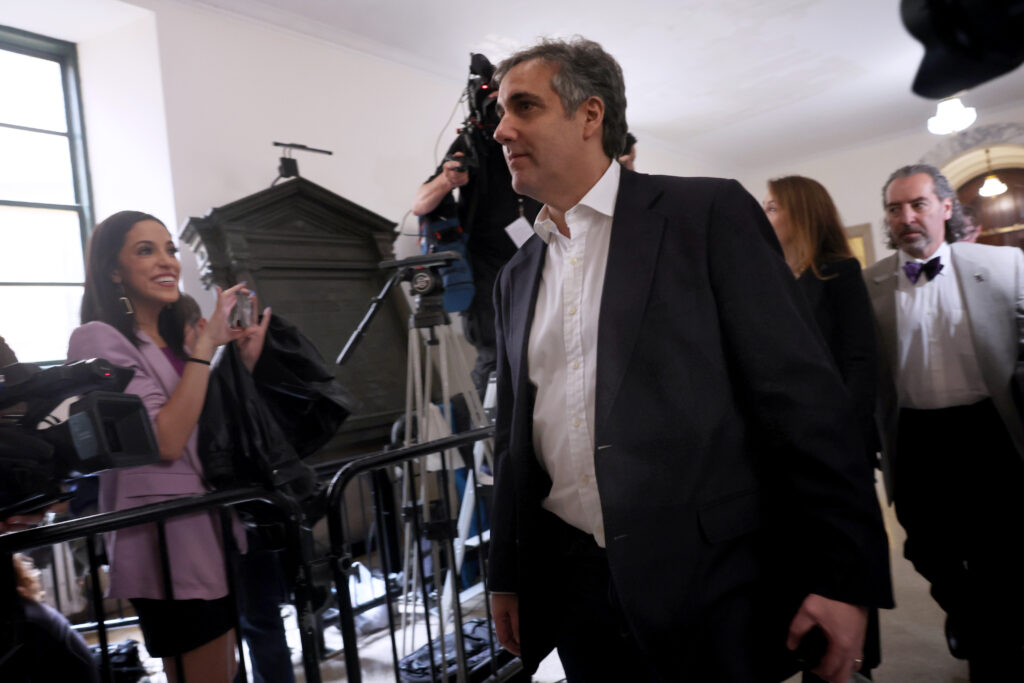
“I was concerned. Very concerned,” Ms. Hicks testified, and later stated that the release of the controversial tape was “intense”, and that it “dominated” media coverage for “36 hours.”
While Mr. Trump’s campaign staff considered the tape to be “damaging”, and a “crisis,” Ms. Hicks told the prosecutor, Mr. Trump didn’t think it was “something to get so upset over.” Ms. Hicks added, “He felt this was pretty standard stuff for two guys chatting with each other.” At the presidential debate shortly after the tape’s release, Mr. Trump dismissed it as “locker room talk.”
Then the prosecution showed the jury an email Ms. Hicks received on November 4, 2016. A reporter from the Wall Street Journal asked Ms. Hicks for comments about Stormy Daniels, a porn star, and Karen McDougal, Playboy’s Playmate of the Month for December 1997 and Playmate of the Year for 1988. Both women were claiming they’d had sexual relations with Mr. Trump (which he denies). The Journal wanted to know about a deal between McDougal and the Enquirer at that time, in which the tabloid paid Ms. McDougal to “catch and kill” her story and silence her. The reporter said the Journal was about to publish the story.
Ms. Hicks testified that she forwarded the email to Jared Kushner, Mr. Trump’s son-in-law and Ivanka’s husband, because he had “a very good relationship with Rupert Murdoch,” the owner of the Wall Street Journal, and she was hoping Mr. Kushner could “buy a little extra time to deal with this.”
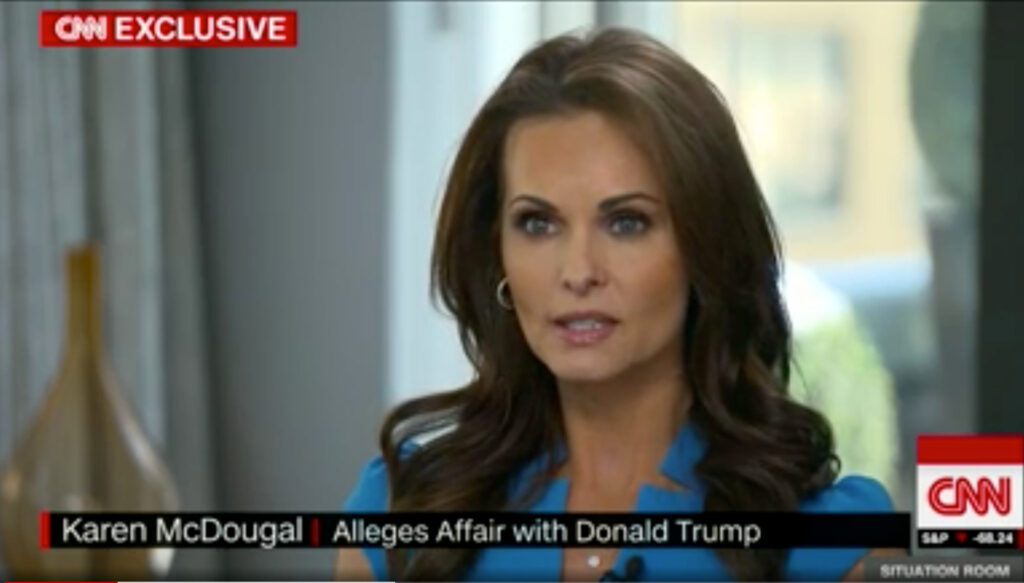
But Mr. Kushner told Ms. Hicks “he wasn’t going to be able to reach Murdoch,” Then Ms. Hicks contacted Mr. Pecker.
“He explained that Karen McDougal was paid for magazine covers and fitness columns and that it was all very legitimate. And that was what the contract was for,” Ms. Hicks testified.
After she drafted the statement on behalf of the Trump campaign for the Wall Street Journal, Ms. Hicks said Cohen, Mr. Trump’s longtime “fixer”, added edits and comments. When they showed the final version to Mr. Trump, he said, according to Hicks, that he “wanted to draft his own statement.” Then he called Mr. Pecker. The core of Mr. Trump’s statement remained the same: there had been no suspicious deal, but a legitimate contract between the National Enquirer and Ms.McDougal.
Finally Mr. Colangelo got to the matter of Stormy Daniels, the adult film star, whose story is at the heart of the case. Answering the prosecutor’s questions, Ms. Hicks told the jury that Mr. Trump said Cohen had paid the porn star to silence her false allegations “out of the kindness of his heart,” and had not consulted with Mr. Trump beforehand.
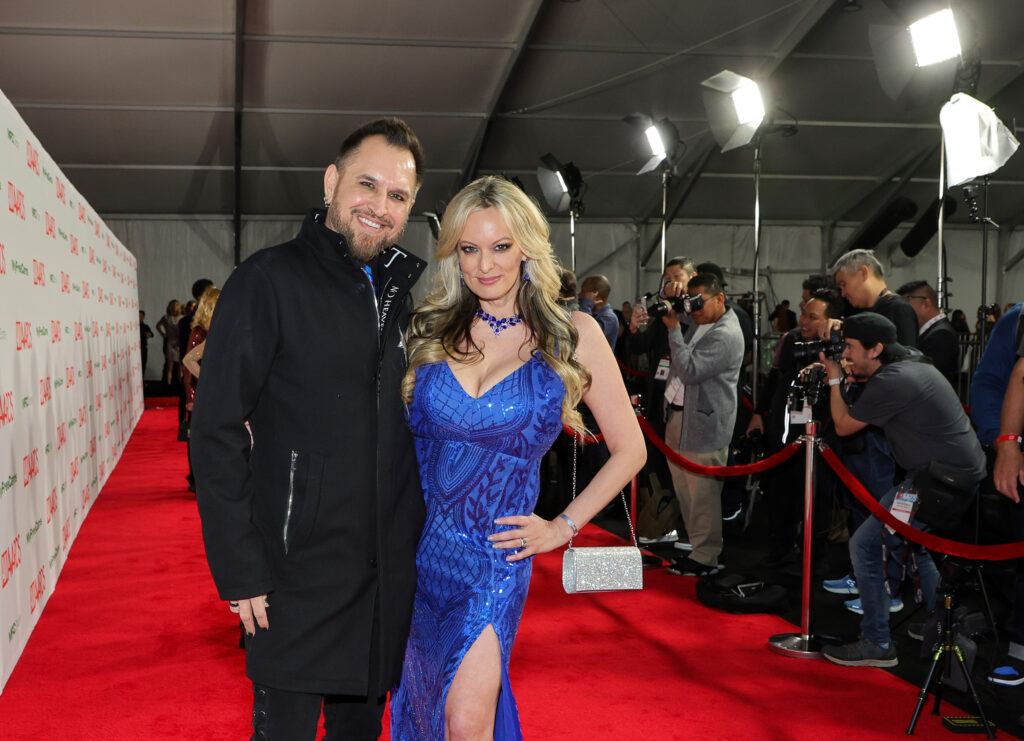
Mr. Colangelo asked whether that is something Cohen would do, and Ms. Hicks responded, “I say that would be out of character for Michael, I didn’t know Michael to be a selfless and charitable person.” She added that Cohen is the “kind of person that seeks credit.”
Then defense attorney Mr. Bove took over the lectern. When he began by asking about Ms. Hicks’s early beginnings at the Trump Organization, she broke down crying on the witness stand and the judge ordered a short break, during which Ms. Hicks was able to leave the courtroom.
When the cross-examination resumed, Ms. Hicks strengthened the defense’s argument by telling the jury Mr. Trump was mostly concerned about protecting his wife and his family when news about alleged affairs started to spread.
“I don’t think he wanted anyone in his family to be hurt or embarrassed by anything that was happening on the campaign,” Ms. Hicks said. “He wanted them to be proud of him.”
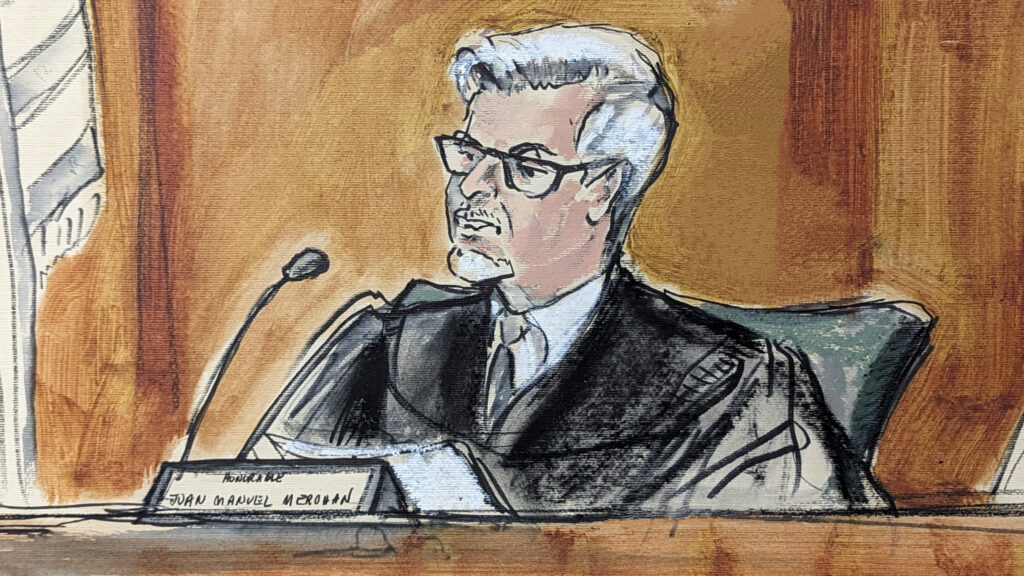
About Cohen Ms. Hicks said, “I used to say he would like to call himself a ‘fixer,’ or ‘Mr. Fix-it’. But it was only because he first broke it.”
After Ms. Hicks was released from the witness stand, the judge, Juan Merchan, finished the so-called Sandoval hearing that he could not complete last week. Such hearings are held so that a defendant can decide whether it is in his best interest to testify. Mr. Trump, who likes to be involved in his legal cases, has said he would testify. Yesterday he told court reporters that he could not testify because the judge imposed a gag order on him. But Judge Merchan addressed the issue this morning and assured Mr. Trump that he has “an absolute right” to testify regardless of the gag order. Mr. Trump mouthed a “Thank You” to the judge.
During the Sandoval hearing in the afternoon, Judge Merchan did not grant the prosecution its request to question Mr. Trump, if he decides to testify, about the nine recent violations of his gag order. Instead the judge agreed with defense attorney Todd Blanche that it would be “too prejudicial” for a jury to hear a defendant being questioned about violations on a gag order that the judge, who presides over the ongoing trial, has imposed on him.
On Tuesday, the judge fined Mr. Trump $1,000 for each of the nine violations amounting to a total sum of $9,000, which Mr. Trump paid the following day using cashier’s checks. Then on Thursday the prosecution alleged four new violations, telling the court that the defendant “has done it again…” The judge has yet to rule on the latest violations.
After the proceedings Mr. Trump told court reporters, “I was very interested in what took place today.” The trial will continue on Monday morning.

